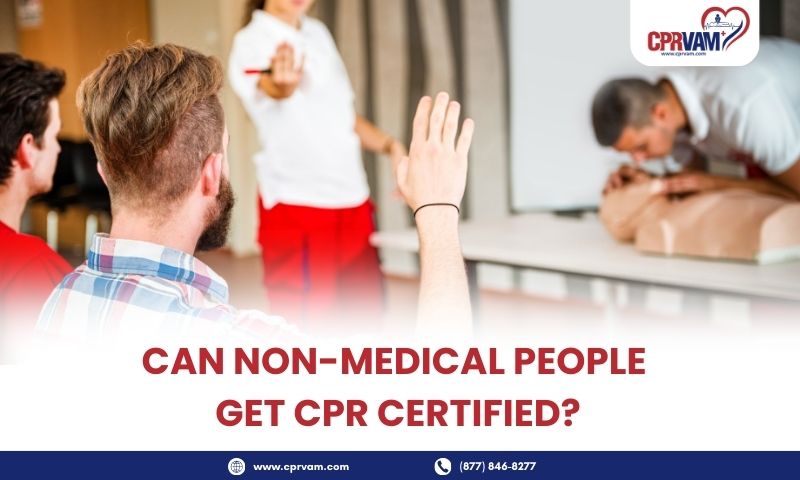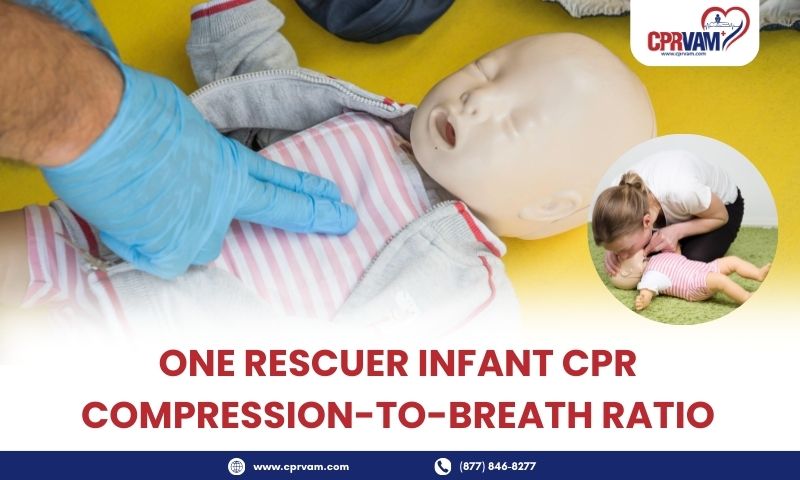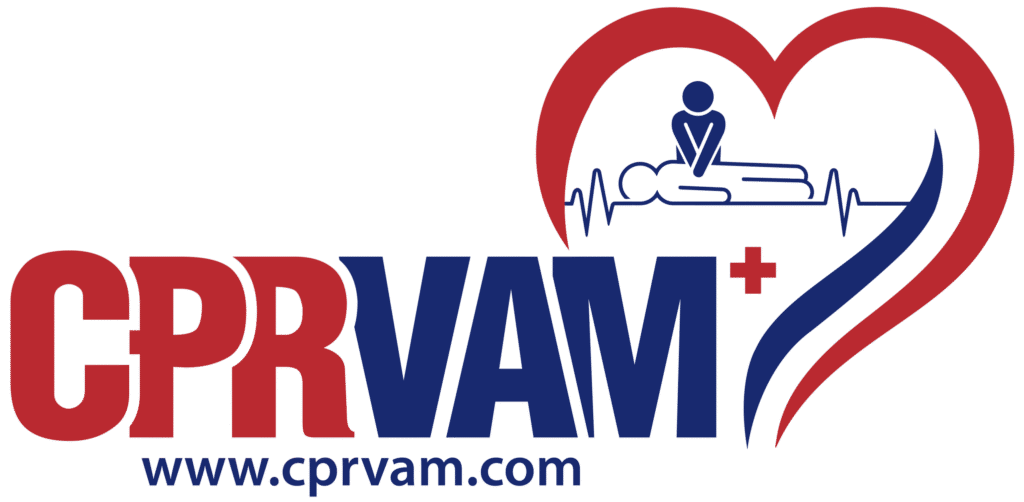You may have earned a CPR certification course at some point, but are you still prepared to handle an emergency today? Many people don’t realize that CPR certification comes with an expiration date. In fact, studies show that out of every 100 people who get certified, only about 18 remain current with their credentials. That means the majority of CPR-trained individuals are no longer qualified to respond effectively in life-threatening situations.
So, how long is CPR certification valid? Typically, a CPR certification from leading organizations such as the American Heart Association (AHA) or the American Red Cross is valid for 2 years [1]. Once this period ends, you are no longer officially certified. To stay compliant and prepared, you must complete a recertification or renewal course before your certification expires. If you wait until after it expires, you’ll have to retake the full initial CPR course to regain your credentials.
It’s also important to note that earlier, some organizations offered a 30-day grace period after expiration. However, this policy is no longer in place, meaning if your certification lapses, you’re considered uncertified immediately.
This blog will help you to gain a clear understanding of CPR certification expiration, including why timely recertification is essential and steps to take to stay certified. By the end, you’ll know exactly what to do to keep your CPR skills up to date and ensure you’re ready when an emergency strikes.
Why Do CPR Certificates Have Expiration Timeframe?
A CPR certificate doesn’t expire just because of rules. The expiration serves an important purpose: ensuring that certified individuals remain competent, confident, and prepared to save lives.
One major reason is the updated guidelines. Organizations such as the American Heart Association (AHA) and the Red Cross regularly revise CPR protocols to reflect the latest medical research and emergency response practices. Renewal guarantees that you’re trained in the most effective, evidence-based methods.
Another critical factor is skill retention. CPR is a hands-on skill, and like any physical technique, it fades over time without regular practice. Even if you mastered it during your initial training, two years later, your ability to perform CPR effectively may decline under pressure.
Finally, renewal courses help rebuild confidence in emergencies. When someone collapses and every second counts, hesitation can cost lives. Regular recertification reinforces your knowledge and muscle memory so you can act without delay.
In short, CPR certificates expire to protect both the responder and the patient. Expiration isn’t about paperwork. It’s about ensuring that when an emergency happens, you’re ready to deliver effective, up-to-date, life-saving care.
How to Know When Your CPR Certification Validity Expires?
The easiest way to check your expiration date is by looking at your CPR certification card, whether it’s a physical card issued by your training provider or a digital eCard available through the official American Heart Association (AHA) website [2]. In many cases, training organizations also send email or mail reminders as your renewal date approaches, so you don’t miss the deadline. Staying on top of your certification status is important because an expired CPR card means you may no longer be considered compliant in workplaces or volunteer settings that require it.
If your card is close to expiring, make sure to schedule your renewal course early. This way, you’ll avoid any lapse in certification and ensure you’re always ready to respond in an emergency.
What Happens if Your CPR Certification Expires?
1. Loss of Professional Credibility
After the 2-year mark, your CPR certification is considered outdated. That means your knowledge may no longer align with the latest CPR guidelines. For healthcare providers, fitness trainers, teachers, and volunteers, letting certification lapse can signal a lack of commitment to proper care, reducing your professional credibility and the trust others place in your emergency response abilities.
2. Decline in Confidence and Skills
CPR is a hands-on skill that requires regular practice. Even if you remember CPR techniques, an expired certification can shake your confidence. Without a valid certification, you may hesitate during emergencies, unsure if your approach aligns with the current guidelines. That hesitation could delay life-saving care.
3. Workplace Non-Compliance
In many professions, valid CPR certification isn’t optional. It’s a legal and job requirement. Healthcare workers, first responders, childcare providers, fitness trainers, and even coaches often need valid certification to stay employed. Expired certification can lead to non-compliance with workplace policies, potentially jeopardizing your employment or volunteer eligibility.
4. Loss of Legal Protection
Good Samaritan laws and workplace liability protections typically cover individuals who act in good faith with up-to-date certification. If your credential has expired, you could face legal or workplace consequences if something goes wrong during an emergency response.
5. Requirement to Retake Full Course
Unlike a renewal, which is shorter and faster, an expired certification usually requires you to retake the full CPR course. Previously, some programs offered a grace period, but most now require individuals to start from scratch once the expiration date passes. This means more time, effort, and cost compared to simply renewing it on time.
What are the Steps for Renewing Your CPR Certification?
Emergencies can occur at any moment, and your quick response can save lives. Even a brief hesitation or lack of preparedness can make the difference between life and death. Don’t let an expired CPR certification hold you back when it matters the most. You can renew it easily by following these simple steps:
1. Check Expiration Date
2. Renew Before It Expires
Renew your CPR certification before the date of expiry to avoid retaking the full initial course. Timely application for recertification and completing the renewal courses takes a shorter time and is hassle-free. But in case you cross the expiration date, you’ll need to complete the full course again, which can be inconvenient and costly.
3. Choose a Feasible Renewal Course & Training Provider
Reputed organizations like the American Heart Association offer flexible renewal courses in various formats and schedules through their training centers. You can choose from online, in-person, or blended courses. Pick the format and timeline that best fit your schedule, and ensure the provider is recognized for CPR certification.
4. Enroll and Complete the Training
Once you select a course, enroll in and complete your training. Renewal courses typically include hands-on manikin practice, instructional videos, and interactive Q&A sessions, depending on the format. These refresher programs ensure your CPR skills meet the latest protocols and strengthen your confidence in handling emergencies.
5. Pass the Assessment
The recertification test includes a brief skills assessment that checks your proficiency in CPR skills. You’ll complete a hands-on evaluation on a manikin, showing that you can perform CPR effectively under emergency conditions. Passing this assessment confirms that your life-saving skills are up to date.
6. Receive Your Renewed Certification
After completing your assessment, your renewed CPR certification is issued. Your training center may provide a digital certificate immediately, or you can receive a physical card. With your updated certification, you are fully prepared to respond confidently in any emergency.
How to Maintain CPR Skills Between Certification Renewals?
Maintaining CPR proficiency requires consistent practice beyond biannual certification. Without regular practice, skills naturally decline, which can affect your confidence and accuracy even within the certification period. Fortunately, there are a few practical ways to keep your CPR skills sharp between certification renewals:
1. Practice CPR Techniques Regularly
Schedule refresher sessions or skill workshops every few months. Frequent practice helps reinforce muscle memory and improves your reaction time during real-life emergencies.
2. Stay Updated on CPR Guidelines
CPR recommendations and techniques evolve over time. Follow trusted organizations like the American Heart Association (AHA) or Red Cross to ensure you are practicing the most current procedures.
3. Leverage Online Resources
Use instructional videos, quizzes, and interactive tutorials to review key CPR skills between in-person training. These resources help you refresh knowledge conveniently and consistently.
4. Engage in Hands-On Practice
Whenever possible, participate in hands-on sessions. Practicing on mannequins or in simulation exercises enhances your confidence and precision, making it easier to respond effectively in emergencies.
5. Expand Your Skills with Advanced Training
Consider enrolling in advanced CPR courses such as Pediatric CPR or Advanced Cardiovascular Life Support (ACLS). These programs broaden your expertise and prepare you for a wider range of situations.
6. Set Reminders for Certification Renewal
Mark your calendar to renew your certification on time. Staying proactive prevents lapses and ensures your skills remain officially recognized.
7. Organize Your Certification Records
Keep your CPR documentation in an accessible place for easy reference. Being organized ensures you can quickly provide proof of certification when required.
Renew Your CPR Certification in the Right Way!
Many people mistakenly believe that taking CPR training once is enough to provide emergency care. In reality, timely recertification is crucial. CPR skills can fade over time, and being up to date on your certification can make the difference between life and death. Whether you are a layperson or a healthcare professional, renewing your CPR certification on time is essential. Waiting until it expires may require you to retake the full course, which can be time-consuming.
When you maintain a valid CPR certification, you gain the confidence and competence to handle emergencies effectively. Renewing your certification is a simple process that ensures you are ready to act when seconds matter. Don’t let an expired certification stop you from performing your role in critical situations.
If it’s time to renew your CPR certification, CPR VAM makes it easy. We provide a range of refresher and renewal courses near you, so you can stay certified, confident, and fully prepared to respond.
CPR Certification Duration FAQs
1. Can I Renew My CPR Certification Early?
Yes, you can and should renew your CPR certification before it expires. Renewing early ensures your certification remains valid, avoiding the need to retake the full course if it lapses. To stay on track, set reminders well in advance of your certification’s expiration date.
2. Are Online CPR Certifications Valid?
Online CPR certifications issued by trusted organizations like the American Heart Association (AHA) or the American Red Cross are valid and widely accepted. Make sure your course is from a recognized provider to guarantee your certification is valid in all professional and medical settings.
3. Do I Need to Keep My Physical Certification Card?
Requirements for a physical CPR card vary by organization. Many institutions accept digital cards, but some may still request the original printed certification. Confirm the specific rules with your employer or the organization where you intend to use your certification to avoid complications.
4. Does Certification Last Longer for Healthcare Professionals?
No, CPR certification for healthcare professionals does not last more than two years. The validity period is the same for both healthcare providers and laypeople. Healthcare professionals must renew their CPR credentials on time to maintain legal and workplace compliance. In other sectors, renewal may not be legally required, but keeping your certification current is highly recommended for safety and preparedness.









